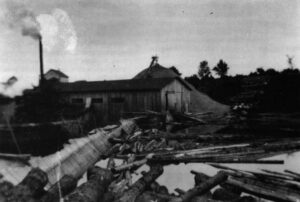Articles
Categories
Shoving the Poor Through the Courthouse: How the Legal Sausage is Stuffed
Fifty years ago, an eloquent drifter from Florida changed the American justice system. Clarence Earl Gideon, accused of breaking into a pool hall, was tried without a lawyer in Bay County, Florida, in 1961. Convicted after representing himself, he petitioned the Supreme Court
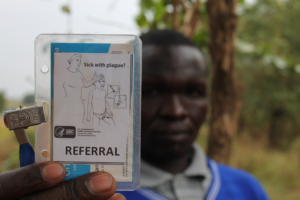
Centuries after the Black Death, Plague Still Kills
ARUA, Uganda — Isaac Baniyo stumbled through his final exam in English last November as a pounding headache and chest pain made it difficult to focus. The teenager’s parents sent him on foot to a drug shop not far from their grass-roofed hut
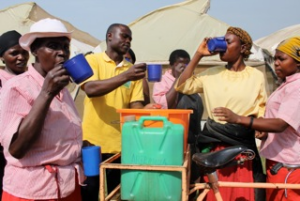
The WHO vs. the Tea Doctor
ENTEBBE, Uganda—It’s a little after 9 a.m. on the Wagagai Flower Farm, and Robert Watsusi pedals a bicycle laden with two 3-gallon jugs of a hot, bitter black tea. As he rounds a corner, workers emerge from football field–size growing houses to imbibe their weekly dose of the elixir they say keeps them free from malaria.

Latin America’s Gay Marriage Revolution
In his second inaugural address, U.S. President Barack Obama pledged to make the United States a beacon for the world by recommitting the country to its ideals of equality. He also made history by saying those ideals demand marriage rights for same-sex couples
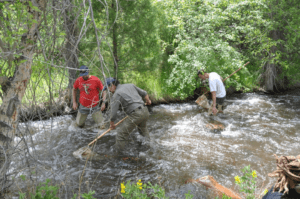
Climate adaptation: Survival of the flexible
Up in the foothills of the Rockies last summer, researchers from Colorado State University in Fort Collins fanned out along the banks of a stream. Some took the water’s temperature and measured its speed and chemistry. Others waded in to catch insects using flat-bottomed nets.
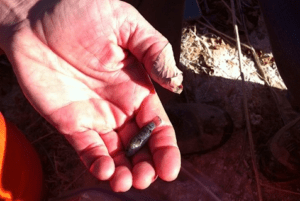
Should we Dilute Genes to Save a Species?
West of Pahrump, Nevada, in a corner of the Mojave Desert a couple thousand feet above Death Valley, a warm aquifer provides a home for one of the world’s rarest animals. It’s a tiny silvery-blue fish, smaller than your pinkie toe, and in the past 50 years it has survived real-estate speculators,
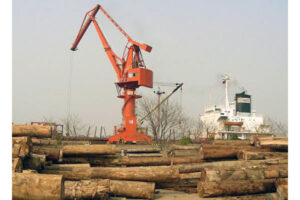
As China Grows Rich, Rainforests Fall
ZHANGJIAGANG, China – An incredible forest lies on its side in this gritty industrial town in southeastern China. On the southern bank of the Yangtze River nine-foot-diameter kevazingo trees from Gabon rub against Cambodian rosewoods and Indonesian teaks. Nearby, rust-colored bark from Malaysian
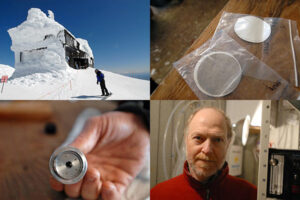
China’s Rise Creates Clouds of U.S. Pollution
MOUNT BACHELOR, Oregon – At more than 9,000 feet along the crest of Oregon’s Cascade mountain range, the top of this snow-covered peak normally enjoys some of America’s cleanest air. So when sensitive scientific instruments picked up ozone – the chief component of
“Don’t Forget Your Court Date”
How text messages and other technology can give legal support to the poor. It has been three years since the Great Recession ended, but the nation’s courthouses are still swamped with eviction cases, foreclosures, and debt collection suits. If overdue bills and late
Pharming Bad Bacteria
In December 2003, a farm couple in the Netherlands scheduled their six-month-old daughter for surgery to correct a congenital heart defect. But before Eveline van den Heuvel could be admitted to the hospital, a test showed that she was carrying a strain of
The Man Who Turned Antibiotics Into Animal Feed
The food industry and the medical community have fought bitterly, and for decades, over the widespread practice of adding antibiotics to livestock feed to make animals grow faster. Banning the practice would be an agricultural disaster, food companies predict—or at least the end
Gay Ugandans Take the Law Into Their Hands
There are things many Ugandans know about Rachael Kungu: that she is a DJ who spins at clubs and house parties, that she is warm and approachable, that crowds adore her, and that, perplexingly, she is a lesbian. Kungu lives in a leafy,
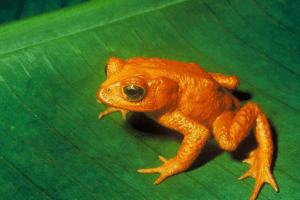
A Rise in Fungal Diseases is Taking A Growing Toll on Wildlife
On the southeastern outskirts of Washington, D.C., inside the Smithsonian Institution’s cavernous Museum Support Center, one can see some frogs that no longer exist. Alcohol-filled glass jars hold preserved specimens of Incilius periglenes, the Monte Verde golden toad;

Frozen Sperm Offer a Lifeline for Coral
COCONUT ISLAND, Hawaii — Just before sunset, on the campus of the Hawaii Institute of Marine Biology, Mary Hagedorn waited for her mushroom corals to spawn.
As corals go, Fungia is fairly reliable, usually releasing its sperm and eggs two days after the full moon.
For Financial Literacy, A Surprising Political War
When Kelly Cook and her husband tackled the daunting task of buying their dream home in Lebanon, Ohio, they got help from an unexpected source. Struggling to come up with a down payment, the couple discovered a program intended for moderate income homebuyers
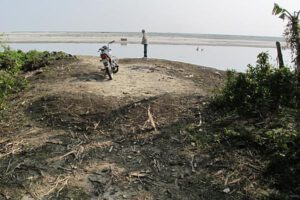
Paradise Lost: Erosion Threatens to Destroy Assam’s Ancient Island of Monasteries
Sri Tirtha Mahanta, spiritual leader of Majuli Island’s Bor Alengi Satra, displays some of the relics he was able to salvage before his satra washed away. Sri Tirtha Mahanta, the 74-year-old spiritual leader of the Bor Alengi Satra, a Hindu monastery on Majuli
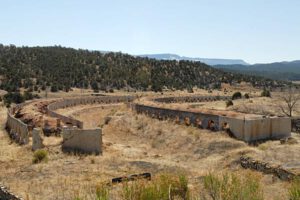
Chinese Demand Stokes U.S. Coal Battle
TRINIDAD, Colorado – When the New Elk mine reopened amid windblown prairies last winter, it attracted little attention. But the mine – a long shaft boring through some of the world’s most valuable coal – strikes at the heart of a growing debate about the future of American coal.
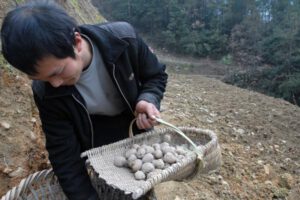
China’s Rising Consumer Class Sparks Climate Change Fears
TUOJIA VILLAGE, China – When you think about China’s growing greenhouse gas emissions, you probably don’t think of people like Zhang Chao or his father Zhang Dejun. Zhang Chao, a 35-year-old middle school teacher living in small city in southwestern
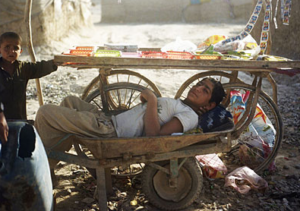
Fleeing the Fight: Displaced in Afghanistan
Thousands of Afghans have fled the death and destruction of southern Afghanistan by abandoning their ancestral homes. They are now displaced, living in a sewage-soaked camp in Kabul, having forsaken their land for survival and their family’s future. Among a maze of mud walls, shielded by leaking

Skipping Banks: The New World of Prepaid Cards for Victims of High Fees
It began with just one bad check, a few dollars short on a rent payment. But the $35 overdraft charge, plus another $50 late fee to the rental company, sent Betty White down a deep financial hole. Another check bounced, then another, then
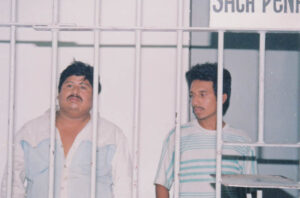
Lynching in Huejutla

The Lessons of Ida Tarbell 2

Border Patrol Catches Flak at Arizona Checkpoint

Report from Abkhazia

The United States, Libya and the Liberian Civil War

How Edgar Bolaños Became Shy Boy in El Salvador
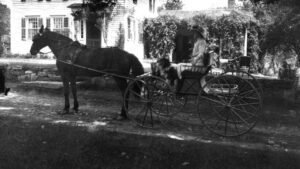
The Lessons of Ida Tarbell 1
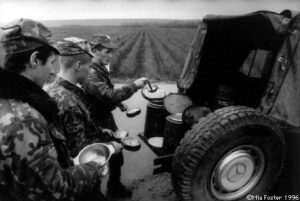
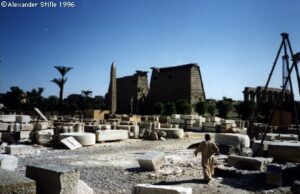
Is Modern Egypt Obliterating its Past?

The Medical Gold Rush for Poor Patients

The Prospect

The City of Brcko: The Key to Bosnia’s Future


The Spoils of War: Report From Nagorno-Karabakh

Lost in New York: Baseball’s Latin Ghetto


The Dialogue of the Deaf Over Coca

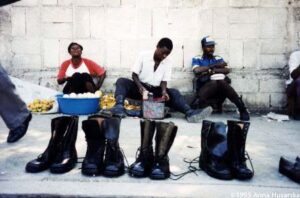
Does Haitian Justice Have to be an Oxymoron?
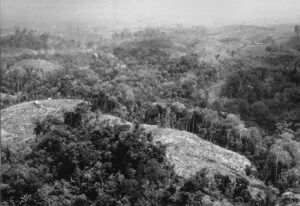
The Lure of a Criminal Cash Crop
Is the Government Losing its Memory?



The Imports

Report From Tajikistan

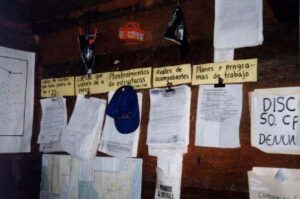
The Mayan Apparatchiks
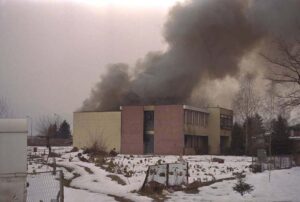
Pitfalls of Peace in Bosnia

Gamblers’ Needs Focus a Town on its Reading Failures

The Dream: Trying to Make it in the Major Leagues

Delray Beach, Florida: Little Haiti’s Little Sister

Traces of the Past

The Others who Suffer from AIDS

Indian Head Start: Restoring a Culture


The Reproachful Voices of the Dead

Profiting from One’s Prayers
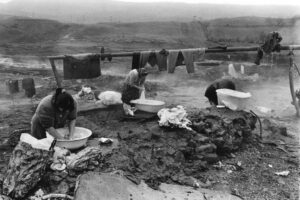
Chechnya Update

Truth on Trial:South Africa’s Past Shades its Future

Survivors

Punishing Women, Punishing Girls

Milestones
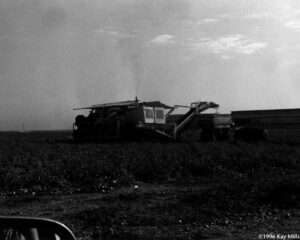

Caste Party: Africa Arrives in America

South African Exiles

In Whose Best Interests?

Judenrein

Time And Time Again: Poverty In A Maine Village
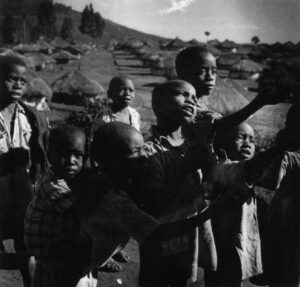
Kenya: Barely Escaping Rwanda

An American Family Lives with AIDS

Head Start: Keeping The Edge


Slackwater

Getting Caught Up: Families Pay The Price
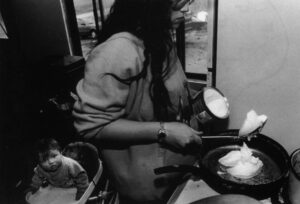

Terror Surrounds Rwanda’s Orphans
